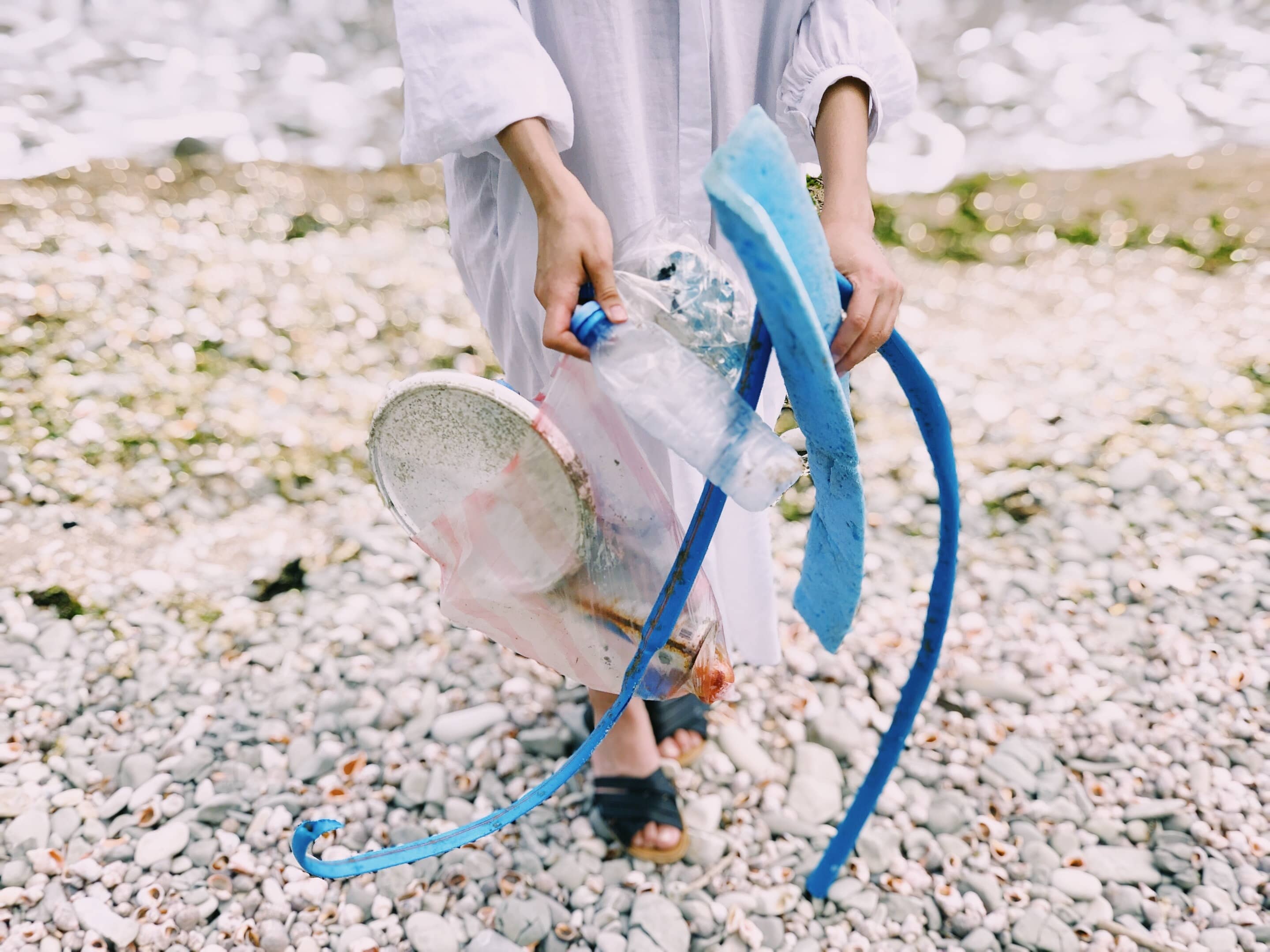You've probably noticed that many of your favourite brands are making an effort to go plastic-free. Governments are slowly introducing bans on disposable plastics, and you might be adjusting to bringing your own mesh bag to the grocery shop.
You might have also asked yourself why is plastic bad anyway?
How Does Plastic Harm the Environment?

You may already know some reasons why plastic is bad for the environment but let's refresh. Firstly, plastics are mostly made from oil, a non-renewable material that's impossible to extract without causing damage to the environment.
Not only does drilling and extraction disturb wildlife habitats and cause pollution in local communities. But the whole process releases millions of tonnes of carbon dioxide into the atmosphere each year.
Secondly, plastic doesn't disappear. Not for a very, very long time!
As you probably know, plastics can take hundreds of years to degrade fully. As we use plastic products much faster than they can break down, we now accumulate more plastic waste every day. That occupies a lot of space on our planet and causes problems on land, underground, and oceans!
Why Is Plastic Bad for the Ocean?
Littering, fly-tipping, and poor plastic waste management means that a huge portion of our plastic waste is in waterways and oceans. When the plastics break down into smaller pieces, sea life and birds often mistake the pieces for food.
Moreover, plastic waste tends to collect in places like the Great Pacific Garbage Patch – often called the Plastic Soup. Once it's broken down into tiny pieces, most plastics float below the surface, making it difficult to remove.
Why Is Plastic Bad for You?
Countless studies show a connection between BPA and other plastic chemicals and health issues and conditions caused by hormone imbalances. This is because plastic chemicals can leach into water. So, even if you buy a bottle of pure mineral spring water, it will be contaminated with plastic chemicals and microplastics.
Why is Plastic Bad for Recycling?

Yes, you can recycle some types of plastic into another product. However, many of the most common plastic products, such as food packaging, takeaway containers, and plastic bags, are not accepted at recycling facilities. This is because recycling these types of plastic is not economically viable or unsuitable for recycling.
Instead, these non-recyclables go to landfill sites or incinerators. And, if you've accidentally put a non-recyclable plastic in with the recyclable plastics, the whole batch could get thrown away.
Of course, recycling high-quality plastics helps to minimise plastic waste. But plastic fibres aren't like metal or glass because they degrade, meaning that you can only reuse them a few times.
That's why recycling plastic is a bad solution to the plastic problem.
Why Are Plastic Water Bottles Bad When They're Reusable?
Reusable plastic bottles are definitely an improvement on single-use plastic bottles. Obviously, if everyone switches to reusable plastic water bottles, we're going to see a reduction in plastic waste.
Less disposable bottles equal less waste.
Why are plastic bottles bad for the earth? Even reusable plastic bottles have their drawbacks. Plastic, whether it's single-use or reusable, is still made from a non-renewable source and still poses the same problems when it degrades. Even reusable plastic bottles contain and release synthetic chemicals when they break down.
Likewise, reusable plastic bottles still have many of the same health risks as disposable bottles. Particularly if you put hot beverages in a plastic bottle.
Also Read: Why you should stop reusing single-use plastic water bottles.
Why is Plastic Bad?
From toxic chemicals and floating garbage patches to health risks and pollution, there are multiple reasons why plastic is bad for the earth.
The only sustainable solution is to minimise our plastic waste and stop using plastic water bottles. Instead, you can pick up a durable, reusable water bottle made from a 100% recyclable material. Food grade stainless steel is ideal because it's non-toxic, recyclable, and safe to use with hot drinks.
Why not choose your eco-friendly water bottle from the FLASKE Collection today?



